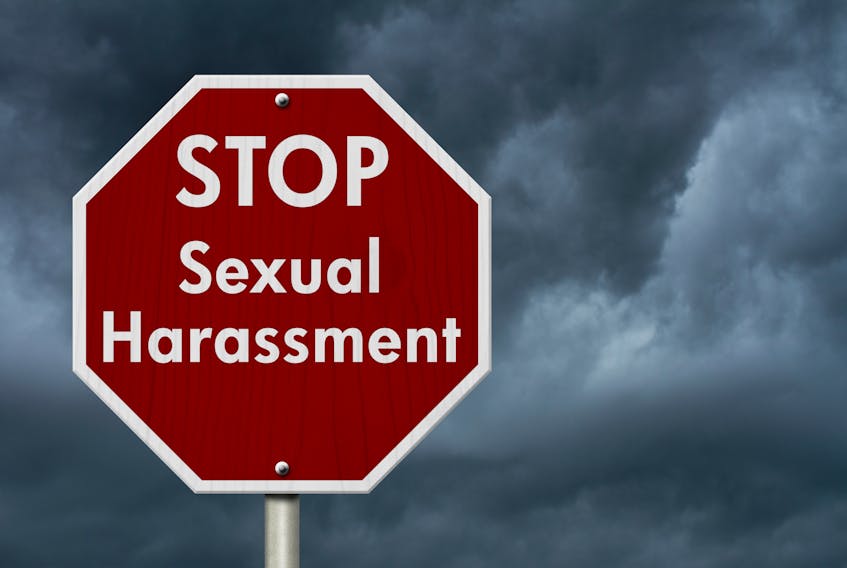SUMMERSIDE, P.E.I. - It was a place Anne felt safe. She had spent three or four summers working at the hospitality establishment. There were the same co-workers and same boss, but one night made everything different.
“I woke up and I didn’t know where I was. I didn’t know how I got there. But I knew I had to get up, find my clothes and shove it all away to go to work.”
It was after Anne’s (not her real name) undergraduate program, about eight years ago. The Kensington native was home for the summer and looking forward to spending another season at her job. To kick off the season, Anne stayed after work with a couple of her co-workers.
“We were having drinks. I had to open the next morning, so my boss suggested that I stay in one of the hotel rooms. That way I didn’t have to worry about getting home or getting to work,” she explained.
The next morning, all Anne could think was, “What did I do?”
“He was married with kids. I felt dread and embarrassment. It didn’t even cross my mind what he could have done to me.”
There is still a portion of that night that Anne doesn’t remember.
“It was something I was going to take to my grave. After the birth of my child in 2015, I began to recognize that what happened that night wasn’t my fault. I realized I had been raped. I was in a full-blown PTSD, depressive state. At the time, my husband didn’t know, and I felt so much guilt and shame, but I didn’t tell him why.”
“It was something I was going to take to my grave. After the birth of my child in 2015, I began to recognize that what happened that night wasn’t my fault. I realized I had been raped. I was in a full-blown PTSD, depressive state. At the time, my husband didn’t know, and I felt so much guilt and shame, but I didn’t tell him why.”
-Anne (workplace sexual assault victim)
Anne thinks post-partum depression could have also played a role, but she decided to go to therapy.
“I never intended to talk about it. But eventually I told my therapist and my husband. There was a bit of relief after it came out, but I still felt so much shame. I felt so guilty.”
Around this time, news about CBC host Jian Gomeshi and sexual harassment allegations began to flood the headlines.
“That was a turning point – seeing the news about him. It became clear to me that what happened wasn’t my fault but rather a man took advantage of a drunk me.”
She didn’t report the incident to the police or to others at her job.
“I was about 21. There was a power dynamic. It should never have happened. Now I’ll never let my guard down around male co-workers.”
Related: P.E.I. women open up about experiences dealing with authorities after sexual assaults
Brenda Picard, executive director of the P.E.I. Human Rights Commission, said about 11 per cent of complaints made to the commission are categorized as sexual harassment.

The commission is a neutral investigative body that doesn’t hand out punishments if a complaint is proven, but occasionally provides recommendations to a business or seminars.
“We cover all kinds of discrimination that is protected by the Canadian Human Rights Act.” Complaints are made by employees, customers, clubs and memberships and forms of advertising or accommodations.
“So, sexual assault would fall under the category ‘sex,’ but we also cover grounds for complaints like age, colour or race, creed or religion, disability, ethnic or national origin, family status, gender expression, gender identity, marital status, political beliefs, gender, sexual orientation and source of income.
Picard says that in this fiscal year, which has just finished, from April 1, 2017, to March 30, 2018, the commission received about 70 complaints.
“Eight of those complaints fell under the grounds category ‘sex,’ and six of those complaints listed sexual harassment.
“In comparison, from 2016 to 2017, we received 45 complaints, seven of which fell under ‘sex’ and four of theme listed sexual harassment, so about nine per cent. And from 2016 to 2015, we received 51 complaints, seven under ‘sex’ and two listing harassment which measures to about four per cent.”
Insights West study finds half of working women experience sexual harassment
In December, Insights West, an independent marketing research company, released its findings from an online survey about workplace sexual harassment. The survey was conducted Nov. 22-29 among 451 working women in Canada.
According to the study, five per cent of women experience a “significant” amount, 12 per cent a “moderate” amount and 33 per cent a “small” amount, while more than half (about 54 per cent) say they have experienced conduct, comments, gestures or contact of a sexual nature that caused offence or humiliation.
Three in 10 experience conduct, comments, gestures or contact of a sexual nature, which was perceived as a condition of their employment or any future opportunities to forward training or promotion.
Additionally, 28 per cent of women in Canada who endured behaviour that placed a condition on their employment, reported it to a superior or HR department, and 22 per cent filed a complaint after an offence or humiliation brought on by someone’s behaviour.
Reasons for not reporting include not a big enough deal (41 per cent), thought they would be seen as troublemakers (34 per cent), nothing would be done (30 per cent), dismissed as unimportant (30 per cent), embarrassment (30 per cent), and fear of retaliation (27 per cent).
Additional incidents reported by working women include:
- Unwanted sexual comments, conversation or innuendo: 37 per cent co-workers, 24 per cent superiors
- Unwanted physical touching, cornering or patter: 33 per cent co-workers, 20 per cent superiors
- Cat calls, whistles or derogatory or demeaning sexual terms: 28 per cent co-workers, 19 per cent superiors
- Unwanted pressure for dates: 23 per cent co-workers, 14 per cent superiors
- Presence of pornography or other sexually graphic images at work: 18 per cent
- Unwanted pressure for sexual activity: 17 per cent co-workers, 14 per cent superiors.









